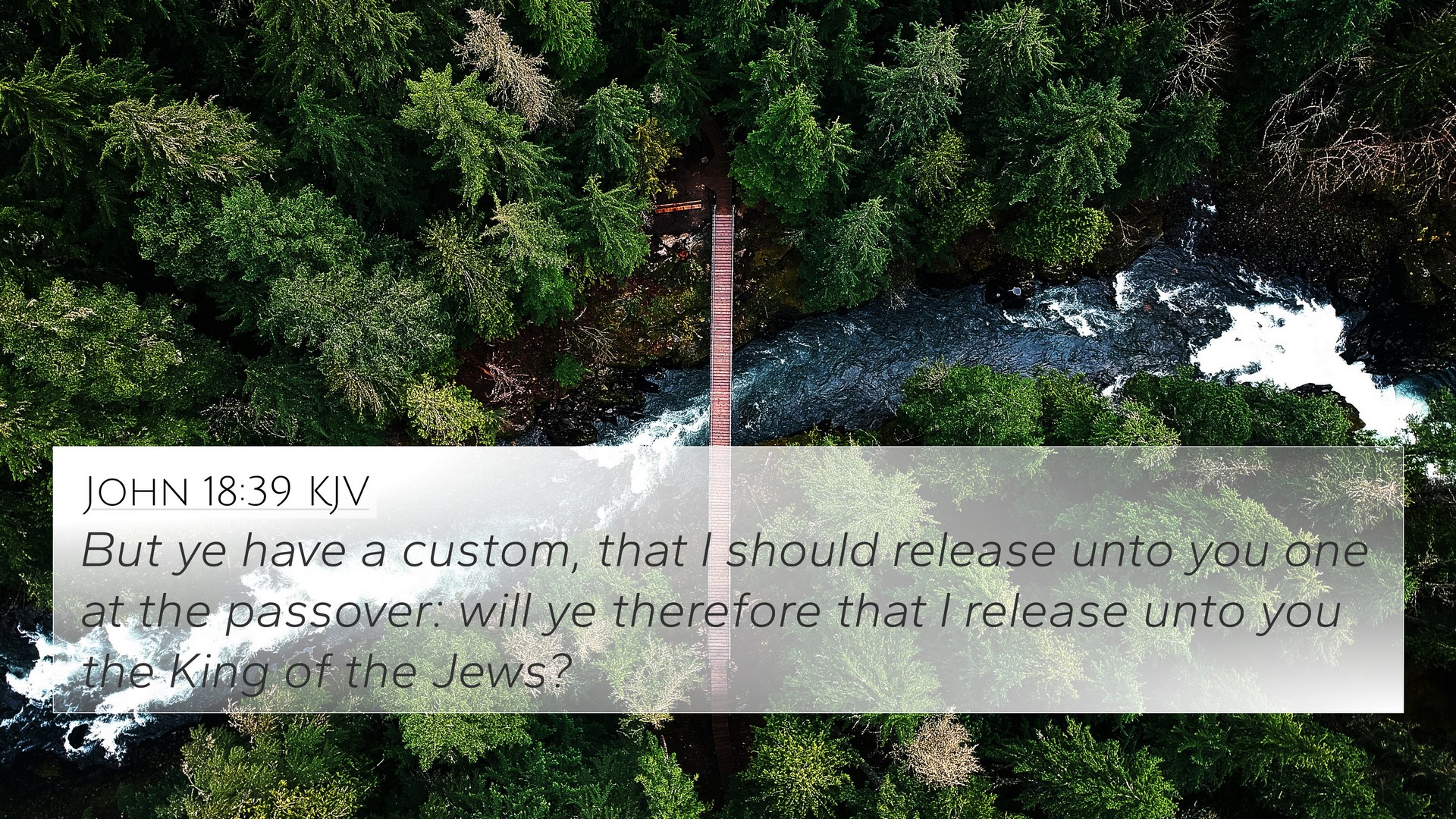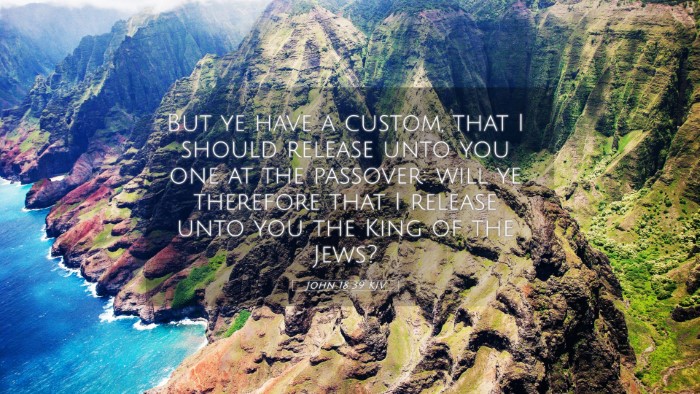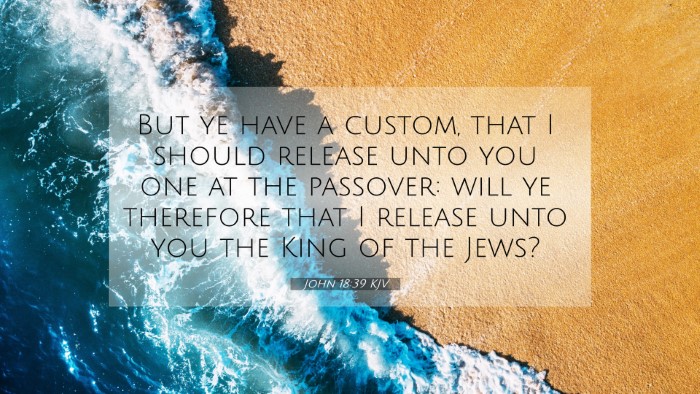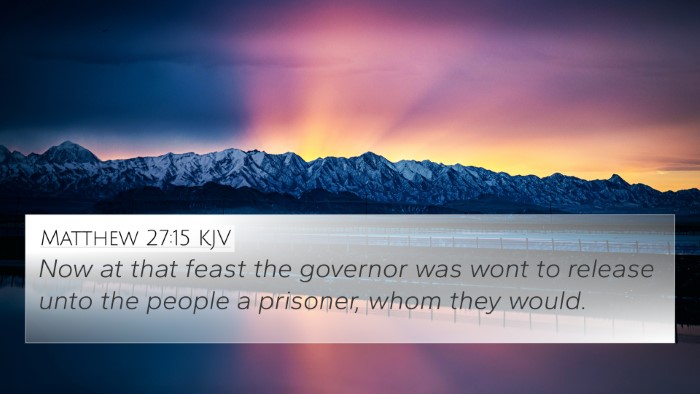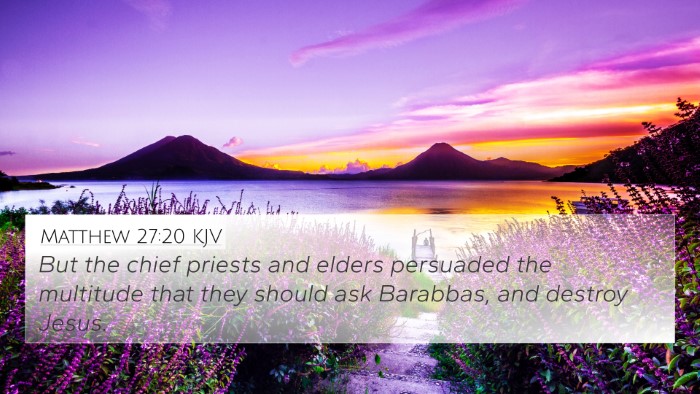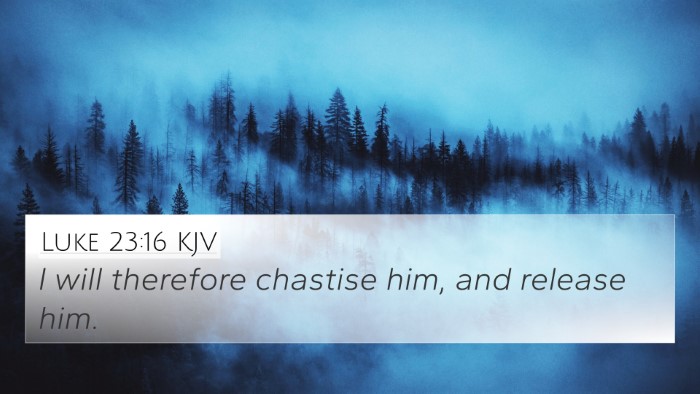Understanding John 18:39 - Summary and Commentary
John 18:39 states, "But you have a custom that I should release someone to you at the Passover. Do you want me to release to you the King of the Jews?" This verse presents a pivotal moment in the narrative of Jesus' trial before Pilate.
Verse Analysis and Meaning
This passage highlights the tension between Jewish customs and the authority of Roman governance. Jesus stands trial, and Pilate is caught between the expectation of the Jewish leaders and his own understanding of justice.
Insights from Commentaries
-
Matthew Henry: Henry emphasizes the significance of the Passover custom, indicating the crowd's choice between a criminal and the innocent Jesus. This situation showcases the deep-rooted societal expectations that often coexist with individual moral dilemmas.
-
Albert Barnes: Barnes discusses Pilate's attempt to engage with the Jewish people by offering to release Jesus, reflecting Pilate's desire to avoid unrest. The phrase "King of the Jews" indicates the ironic and tragic truth of Jesus' kingship—recognized by Pilate yet rejected by the people.
-
Adam Clarke: Clarke points out the significance of the 'custom' of releasing a prisoner at Passover, underscoring Jewish traditions that underscore mercy. He questions the irony that the Messiah, who embodies mercy, stands before them condemned.
Cross-References
John 18:39 connects with several other scriptural passages, offering deeper insights into its themes:
- Matthew 27:15: This verse also mentions the custom of releasing a prisoner during the festival, providing context for the choices presented to the crowd.
- Mark 15:6-15: Similar to John, Mark highlights Pilate's dilemma and the pressure from the crowd, showcasing the tension of political and social expectations.
- Luke 23:17: This Gospel also reflects on the custom of releasing a prisoner, reinforcing the narrative found in John and the other Gospels.
- Isaiah 53:3: This prophetic verse speaks of Jesus being despised and rejected, echoing the sentiment of the crowd's choice to reject Him.
- John 19:14: The proclamation of Jesus as King and the subsequent reactions illustrate the juxtaposition between His true identity and how He was perceived by others.
- 2 Corinthians 5:21: This verse alludes to the righteousness of Jesus, who bore our sins. The innocence highlighted in John 18:39 is expanded in this context.
- John 1:12: The theme of acceptance versus rejection comes into focus, contrasting those who received Him against those choosing Barabbas.
- Psalms 118:22: The stone which the builders rejected has become the chief cornerstone; a foreshadowing of Jesus being rejected but ultimately recognized as foundational.
- Revelation 19:16: This passage reiterates Jesus' identity as King, linking back to Pilate's ironic title.
- Matthew 21:5: Refers to Jesus entering Jerusalem as King, a theme contrasted against the preference for releasing a criminal during His trial.
Thematic Connections
The verse encapsulates multiple themes significant in understanding the nature of Christ's mission and the reactions to Him within the context of societal customs.
Justice vs. Injustice
The pressure on Pilate illustrates the conflict between moral duty and public opinion. This reflects broader Biblical themes concerning justice and the often-inverted values of society.
Redemption and Choice
The choice offered to the people serves as a metaphor for the broader theme of redemption. This moment signifies a pivotal decision point; much like today, we are often faced with choices regarding the acceptance or rejection of Christ.
Irony of Kingship
The irony present in portraying Jesus as 'the King of the Jews' while in chains contrasts worldly perceptions of power with the true nature of Jesus’ kingship, which is rooted in service and sacrifice.
Conclusion
John 18:39 serves a critical role in the narrative of Jesus' trial and the broader theological implications of His kingship and sacrifice. The connections and cross-references to other Biblical texts enrich our understanding of this pivotal moment, inviting deeper reflection on the nature of choice, justice, and redemption.
